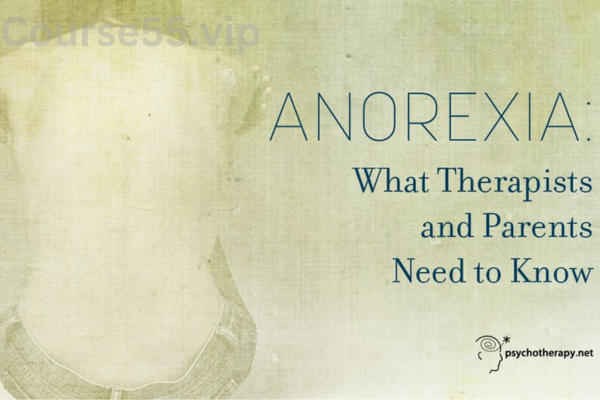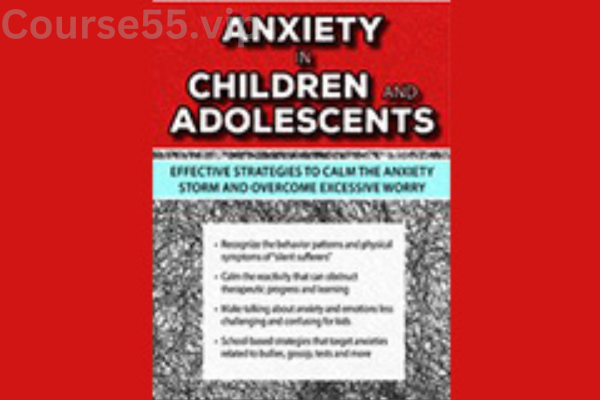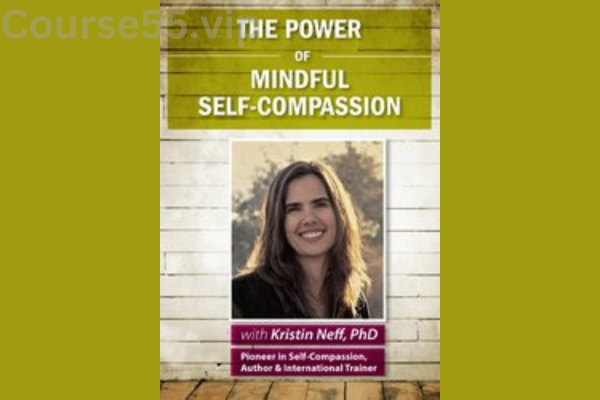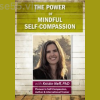-
×
 Legal and Ethical Issues in Behavioral Health in South Carolina By Lois Fenner - PESI
1 × $23.10
Legal and Ethical Issues in Behavioral Health in South Carolina By Lois Fenner - PESI
1 × $23.10 -
×
 What to Do in the First 90 Days of Your New Job
1 × $23.10
What to Do in the First 90 Days of Your New Job
1 × $23.10 -
×
 Understanding the Needs of the Dying: Bringing Hope, Comfort and Love to Life's Final Chapter By David Kessler - PESI
1 × $23.10
Understanding the Needs of the Dying: Bringing Hope, Comfort and Love to Life's Final Chapter By David Kessler - PESI
1 × $23.10 -
×
 Outbursts, Oppositional Defiance and Frustration in the Classroom: Self-Regulation Techniques to Reduce the Frequency, Severity and Duration of Problematic Behavior By Laura Ehlert - PESI
1 × $23.10
Outbursts, Oppositional Defiance and Frustration in the Classroom: Self-Regulation Techniques to Reduce the Frequency, Severity and Duration of Problematic Behavior By Laura Ehlert - PESI
1 × $23.10 -
×
 Anorexia - What Therapists and Parents Need to Know With Lisa Sabey and Robert Blair
1 × $7.70
Anorexia - What Therapists and Parents Need to Know With Lisa Sabey and Robert Blair
1 × $7.70 -
×
 Rewire the Anxious Brain: Neuroscience-Informed Treatment of Anxiety, Panic and Worry By Marwa Azab - PESI
1 × $23.10
Rewire the Anxious Brain: Neuroscience-Informed Treatment of Anxiety, Panic and Worry By Marwa Azab - PESI
1 × $23.10 -
×
 Orthopedic Challenges: Expert Strategies to Avoid Harm & Enhance Healing By William Mazzocco - PESI
1 × $23.10
Orthopedic Challenges: Expert Strategies to Avoid Harm & Enhance Healing By William Mazzocco - PESI
1 × $23.10 -
×
 Transgender & Gender Non-Binary (TGNB) Clients: Clinical Issues and Treatment Strategies By lore m dickey - PESI
1 × $23.10
Transgender & Gender Non-Binary (TGNB) Clients: Clinical Issues and Treatment Strategies By lore m dickey - PESI
1 × $23.10 -
×
 Self-Regulation & Executive Functioning in Children and Adolescents: Visual Strategies and Hands-on Techniques to Provide Structure, Predictability, and Routines By Kathy Morris
1 × $23.10
Self-Regulation & Executive Functioning in Children and Adolescents: Visual Strategies and Hands-on Techniques to Provide Structure, Predictability, and Routines By Kathy Morris
1 × $23.10 -
×
 Intermediate To Advanced Breath-Control Course By Simon Borg-Olivier
1 × $39.00
Intermediate To Advanced Breath-Control Course By Simon Borg-Olivier
1 × $39.00 -
×
 Anxiety in Children and Adolescents: Effective Strategies to Calm the Anxiety Storm and Overcome Excessive Worry By Sherianna Boyle - PESI
1 × $23.10
Anxiety in Children and Adolescents: Effective Strategies to Calm the Anxiety Storm and Overcome Excessive Worry By Sherianna Boyle - PESI
1 × $23.10 -
×
 Trauma-Informed Yoga for Children and Adolescents: Mind-Body Sequencing for ADHD, Anxiety and Post-Traumatic Stress By Kathy Flaminio
1 × $23.10
Trauma-Informed Yoga for Children and Adolescents: Mind-Body Sequencing for ADHD, Anxiety and Post-Traumatic Stress By Kathy Flaminio
1 × $23.10 -
×
 Using EMDR Across the Lifespan By Robert Tinker - PESI
1 × $23.10
Using EMDR Across the Lifespan By Robert Tinker - PESI
1 × $23.10 -
×
 Advances in Motor Control and Learning for Neurological Rehab By Ben Sidaway - PESI
1 × $23.10
Advances in Motor Control and Learning for Neurological Rehab By Ben Sidaway - PESI
1 × $23.10 -
×
 Utah Legal and Ethical Issues for Mental Health Clinicians By Susan Lewis - PESI
1 × $23.10
Utah Legal and Ethical Issues for Mental Health Clinicians By Susan Lewis - PESI
1 × $23.10
The Power of Mindful Self-Compassion By Kristin Neff – PESI
$249.00 Original price was: $249.00.$23.10Current price is: $23.10.
SKU: C55vip.11338m3bJsPWk
Category: Download
Tags: Kristin Neff - PESI, Mindful, Power, The Power of Mindful Self-Compassion
The Power of Mindful Self-Compassion: A Comprehensive Review of Kristin Neff’s Transformative Approach – Digital Download!

The Power of Mindful Self-Compassion By Kristin Neff – PESI
Overview

The Transformative Power of Self-Compassion: A Review of Kristin Neff’s Approach
In today’s high-pressure world, prioritizing emotional well-being has become more important than ever. Kristin Neff’s book, “The Power of Mindful Self-Compassion,” explores self-compassion as a life-changing practice that fosters resilience and emotional strength. As a leading researcher in this field, Neff presents self-compassion as an effective antidote to self-criticism and harsh self-judgment, both of which are deeply ingrained in many people. This review examines the fundamental principles of Neff’s teachings, the practical exercises she recommends, and the significant role self-compassion plays in improving mental health.
The Core Elements of Self-Compassion
Neff structures her work around three essential components that define self-compassion: self-kindness, common humanity, and mindfulness. These elements shape the way individuals perceive themselves, particularly in moments of difficulty.
Embracing Self-Kindness
Self-kindness involves treating oneself with care and understanding rather than resorting to self-criticism during challenging times. When faced with failure or setbacks, individuals often engage in negative self-talk, filled with harsh judgments and comparisons. Neff urges readers to recognize these tendencies and replace them with a gentler, more forgiving attitude.
For example, instead of responding to failure with, “I’m not good enough,” Neff encourages a shift in internal dialogue to something like, “I am doing my best, and setbacks are a natural part of learning.” This approach fosters emotional resilience and nurtures a healthier self-image, making it easier to navigate life’s challenges.
Recognizing Common Humanity
The second key component of self-compassion is common humanity, which highlights the shared nature of suffering and personal struggles. Neff emphasizes that recognizing this shared experience helps individuals feel less isolated in their difficulties.
When people encounter hardships, they often assume they are alone in their struggles. However, acknowledging that everyone experiences setbacks can reduce feelings of isolation. For instance, during periods of self-doubt or stress, reminding oneself that such emotions are universal can encourage a more compassionate response rather than one driven by self-judgment.
Cultivating Mindfulness
Mindfulness, the third pillar of self-compassion, involves maintaining an objective awareness of emotions without becoming overwhelmed by them. Instead of suppressing or avoiding pain, Neff advocates for acknowledging and observing difficult emotions without self-judgment.
Practicing mindfulness allows individuals to remain balanced when facing emotional distress. Techniques such as focused breathing and meditation can help cultivate this awareness, leading to improved emotional regulation and mental resilience.
The Psychological Benefits of Self-Compassion
Scientific research conducted by Neff and other experts has consistently linked self-compassion to a range of mental health benefits. Studies indicate that practicing self-compassion results in:
• Reduced anxiety and depression – Self-compassionate individuals tend to experience lower levels of stress-related mental health issues.
• Enhanced emotional resilience – A self-compassionate mindset allows people to recover from failures more effectively, reinforcing a proactive approach to challenges.
• Greater life satisfaction – Embracing self-compassion leads to increased happiness and reduces the fear of failure, allowing for a more fulfilling life experience.
By adopting self-compassion as a regular practice, individuals can relieve themselves of perfectionist tendencies, reduce stress, and cultivate a mindset that promotes self-growth.
Practical Techniques to Develop Self-Compassion
One of the strengths of Neff’s book is its focus on actionable exercises that help individuals incorporate self-compassion into their daily lives. These techniques provide a structured approach to fostering a more compassionate mindset.
• Positive Self-Talk – Practicing supportive internal dialogue helps replace negative thoughts with encouraging affirmations, leading to improved self-esteem and emotional well-being.
• Writing a Self-Compassion Letter – This exercise involves writing a letter to oneself from the perspective of a caring friend. This practice encourages individuals to express their emotions while fostering a sense of understanding and kindness.
• Prioritizing Self-Care – Neff emphasizes the importance of engaging in self-care activities, such as meditation, hobbies, or simply resting, to maintain overall well-being.
These exercises serve as powerful tools in developing a more supportive and compassionate inner voice, helping individuals navigate challenges with greater ease.
Self-Compassion vs. Self-Indulgence: Clarifying the Distinction
One of the common misconceptions surrounding self-compassion is that it is synonymous with self-indulgence or avoiding responsibility. Neff addresses this concern by clarifying that self-compassion is about acknowledging one’s intrinsic worth, not about making excuses or avoiding accountability.
For example, allowing oneself to rest after an exhausting week or giving oneself permission to feel sad without guilt is not self-indulgence—it is a necessary act of self-care. Self-compassion is about meeting one’s needs in a balanced way, rather than using it as an excuse for neglecting responsibilities.
This distinction is crucial, as it reinforces the idea that self-compassion is an empowering practice, not an escape from personal growth or self-improvement.
The Relevance of Self-Compassion in Modern Society
As discussions around mental health become more prominent, Neff’s teachings are more relevant than ever. In a world where stress, anxiety, and self-doubt are increasingly common, self-compassion offers a scientifically backed approach to fostering emotional resilience.
Additionally, many schools, workplaces, and therapeutic settings are beginning to incorporate self-compassion training into their programs. Organizations that promote self-compassion report improved employee well-being, productivity, and overall job satisfaction. By shifting societal norms to embrace self-kindness and emotional awareness, a ripple effect of improved collective mental health can be achieved.
Final Thoughts: A Transformative Guide to Emotional Well-Being
Kristin Neff’s “The Power of Mindful Self-Compassion” offers a compelling and research-backed exploration of how self-compassion can reshape one’s relationship with oneself. Through the key components of self-kindness, common humanity, and mindfulness, Neff provides readers with the tools necessary to foster emotional resilience and well-being.
By integrating practical exercises into daily life, individuals can develop a more compassionate mindset that enhances their overall life satisfaction. Neff’s blend of scientific insight and real-world application makes this book an invaluable resource for anyone looking to cultivate self-compassion in a world that often prioritizes external validation and self-criticism.
Through this practice, individuals can truly embrace imperfection, strengthen emotional resilience, and cultivate a deeper sense of connection with themselves and others, leading to a more fulfilling and balanced life.
Frequently Asked Questions:
Business Model Innovation: We operate a group buying strategy, allowing participants to share costs and access popular courses at reduced prices. This model benefits individuals with limited financial resources, despite concerns from content creators about distribution methods.
Legal Considerations: The legality of our operations involves complex issues. Although we don’t have explicit permission from course creators to resell their content, there are no specific resale restrictions stated at the time of purchase. This ambiguity creates an opportunity for us to provide affordable educational resources.
Quality Control: We ensure that all course materials purchased are identical to those offered directly by the creators. However, it’s important to understand that we are not official providers. As such, our offerings do not include:
– Live coaching calls or sessions with the course author.
– Access to exclusive author-controlled groups or portals.
– Membership in private forums.
– Direct email support from the author or their team.
We aim to reduce the cost barrier in education by offering these courses independently, without the premium services available through official channels. We appreciate your understanding of our unique approach.
Be the first to review “The Power of Mindful Self-Compassion By Kristin Neff – PESI” Cancel reply
You must be logged in to post a review.












Reviews
There are no reviews yet.